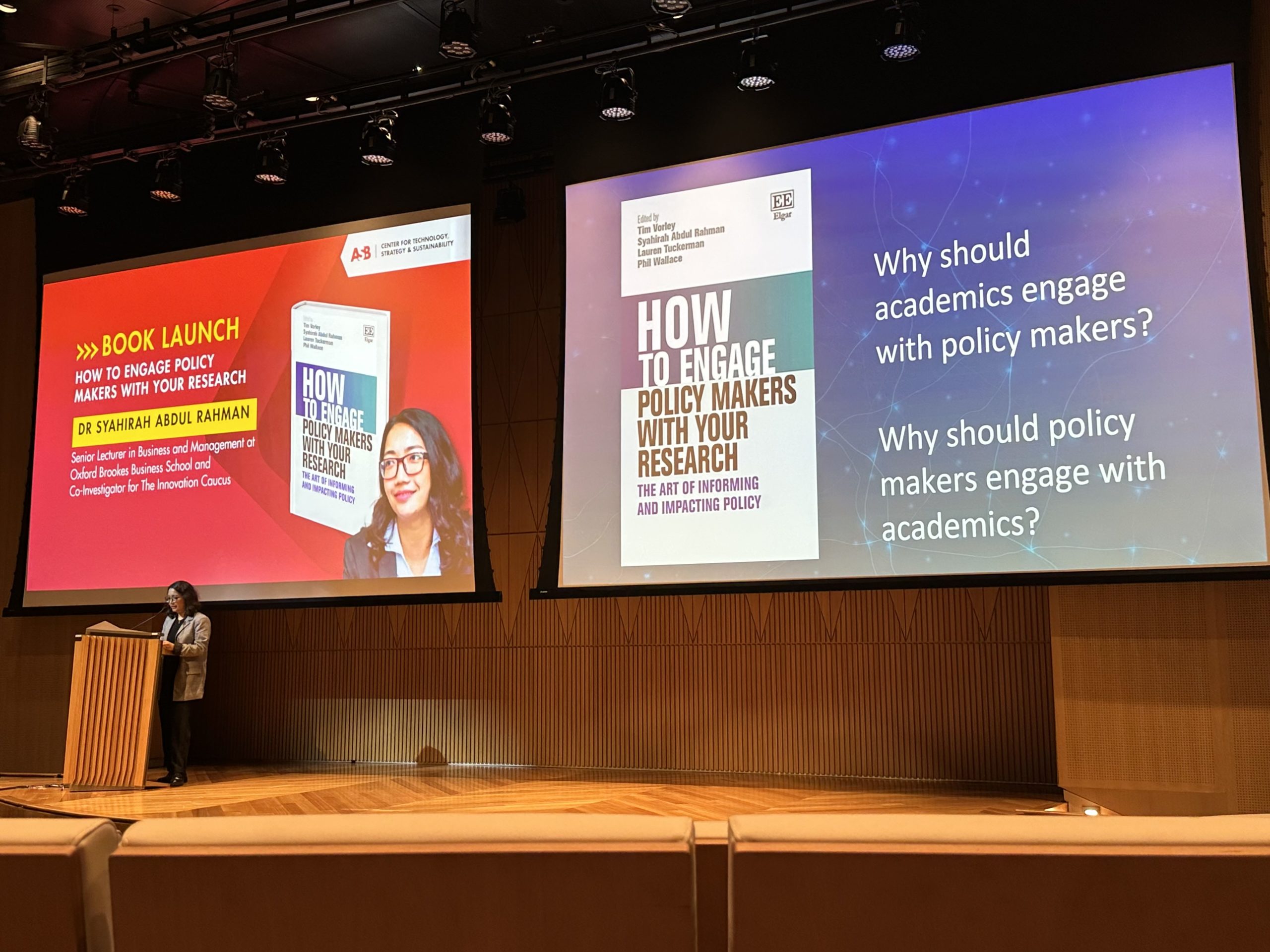Last month, I had the privilege of representing the Innovation Caucus and promoting our new book, “How To Engage Policymakers with your Research”, in Malaysia at “Research with Impact: From Academia to Policymaking”. Organised by the Centre for Technology, Strategy and Sustainability (CTSS) at the Asia School of Business, Kuala Lumpur, the event was attended by nearly 60 academics, policymakers, and industry professionals focussed on finding common ground in developing meaningful collaborations between different stakeholders for the purposes of advancing policy and/or having industrial impact.
by Dr Syahirah Abdul-Rahman (Innovation Caucus Co-I)
The panel discussion was chaired by ASB’s Dr Renato Lima de Oliveira. My fellow panellists were Professor Datuk Dr. Kalaiarasu M Peariasamy (Director of Institute for Clinical Research at National Institutes of Health), Dr Sarena Che Omar (deputy director of research at Khazanah Research Institute), and Dr Carmelo Ferlito (CEO of the Center for Market Education), who led a sharing session on what can be learned from experiences in engaging policy makers with academic research. From the issues of food security to the COVID-19 vaccine programme, discussions were insightful in demonstrating the real-life practical challenges and benefits of engaging policymakers with academic research. We shared the importance of setting up and managing expectations up front before embarking on a collaborative piece of work. We also highlighted the importance of learning the right language to translate your work to different audiences. Questions from the audience showed increasing interest in the practical aspects of setting up collaborations and engagement with the external actors of academia.
Since then, I’ve realised that more and more stakeholders are interested in collaborating to meet societal grand challenges, although the common challenge is not knowing how or where to start. Through the event, I was able to liaise with Siti Fairuz Khan, Head of Policy at Gentari, the clean energy solutions of Malaysia’s Petronas (Malaysia’s state-owned oil and gas enterprise). The meeting provided an opportunity to share perspectives on how to facilitate initial conversations that can bridge the gap between academia and industry. Key concerns that arose included the need to begin engagement through non-funded activities, such as preparing accessible literature reviews that could be used by industry partners to gain buy-in from their board of directors on what academics can offer. Specifically, we shared ideas and experiences on the need for industry-academia collaborations to meet the challenge of transitioning to clean energy. It is evident through these meetings that there is so much to be gained from academia, not just in policy spaces, but also in the wider industry. As a takeaway, I urge academics to continue building bridges with external stakeholders, and to find ways to engage your work with them.
